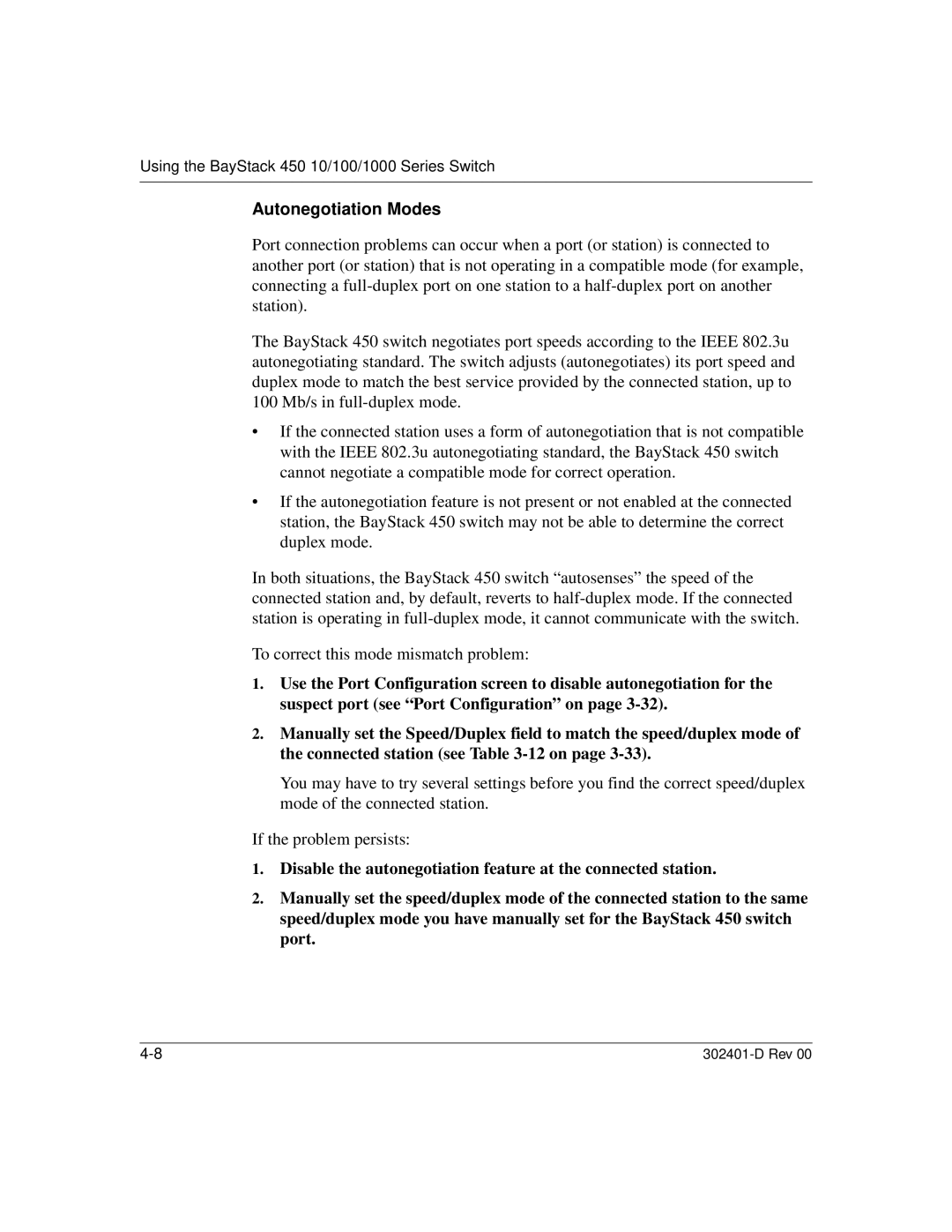
Using the BayStack 450 10/100/1000 Series Switch
Autonegotiation Modes
Port connection problems can occur when a port (or station) is connected to another port (or station) that is not operating in a compatible mode (for example, connecting a
The BayStack 450 switch negotiates port speeds according to the IEEE 802.3u autonegotiating standard. The switch adjusts (autonegotiates) its port speed and duplex mode to match the best service provided by the connected station, up to 100 Mb/s in
•If the connected station uses a form of autonegotiation that is not compatible with the IEEE 802.3u autonegotiating standard, the BayStack 450 switch cannot negotiate a compatible mode for correct operation.
•If the autonegotiation feature is not present or not enabled at the connected station, the BayStack 450 switch may not be able to determine the correct duplex mode.
In both situations, the BayStack 450 switch “autosenses” the speed of the connected station and, by default, reverts to
To correct this mode mismatch problem:
1.Use the Port Configuration screen to disable autonegotiation for the suspect port (see “Port Configuration” on page
2.Manually set the Speed/Duplex field to match the speed/duplex mode of the connected station (see Table
You may have to try several settings before you find the correct speed/duplex mode of the connected station.
If the problem persists:
1.Disable the autonegotiation feature at the connected station.
2.Manually set the speed/duplex mode of the connected station to the same speed/duplex mode you have manually set for the BayStack 450 switch port.
